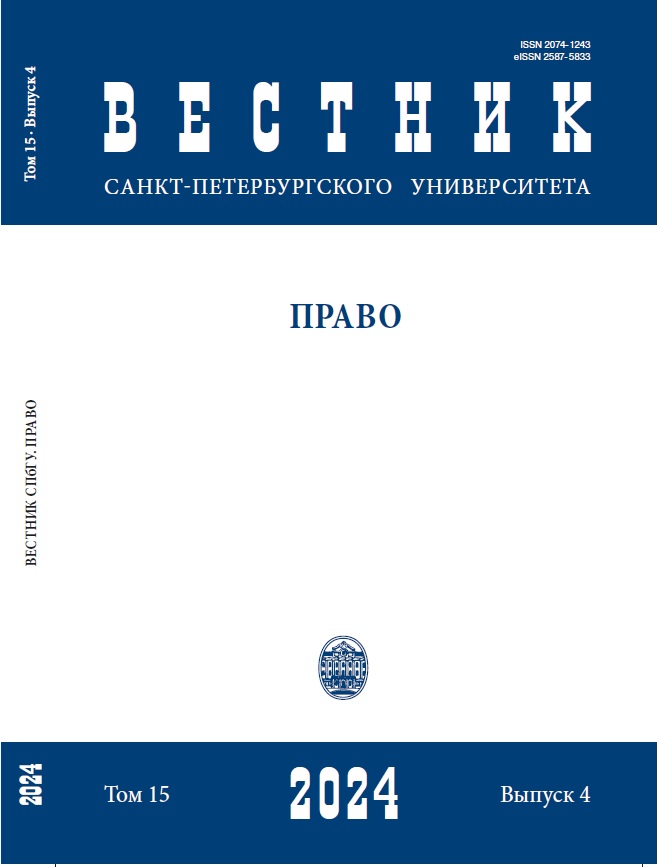Impact of digital tools on the efficiency and effectiveness of public authorities
DOI:
https://doi.org/10.21638/spbu14.2024.401Abstract
In recent decades, digital tools have become widespread, which began to be used in the implementation of powers by public authorities. The article attempted to show a direct connection between the introduction of digitalization elements into public administration and the efficiency and effectiveness of public authorities. A separate role is assigned to the legal regulation of efficiency and effectiveness associated with artificial intelligence. The main goal of the research is to analyze the impact of digital instruments on ensuring the effectiveness of public power, to consider examples of digital mechanisms that are used by public authorities both in Russia and in foreign countries (on the example of members of BRICS). The objectives of the study include identifying the specifics of digital tools that are provided for by regulations and the problems of their application in the context of country experience. In addition, one of the main tasks is to attempt to differentiate the concept of “efficiency” and “effectiveness” of public power and identify differences between the concepts under consideration. Efficiency and effectiveness in the study is considered through the analysis of Russian regulatory legal acts, as well as acts of foreign jurisdictions. The article provides examples that show a direct and direct connection between the introduction of digital tools into the activities of public authorities and its efficiency and effectiveness. The authors believe it is necessary to solve both conceptual and practical problems in distinguishing between two components of the quality of public authority performance in the system of legal regulation, including in the context of the introduction of digital technologies.
Keywords:
public authorities, legal regulation, efficiency of public authorities, system of public authorities, effectiveness of authorities, digital tools, artificial intelligence
Downloads
References
Downloads
Published
How to Cite
Issue
Section
License
Articles of "Vestnik of Saint Petersburg University. Law" are open access distributed under the terms of the License Agreement with Saint Petersburg State University, which permits to the authors unrestricted distribution and self-archiving free of charge.






